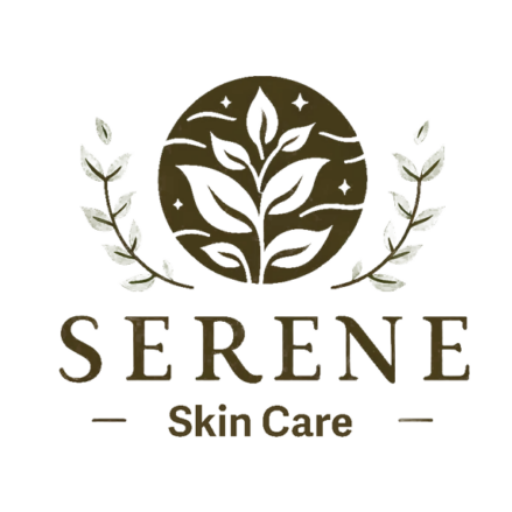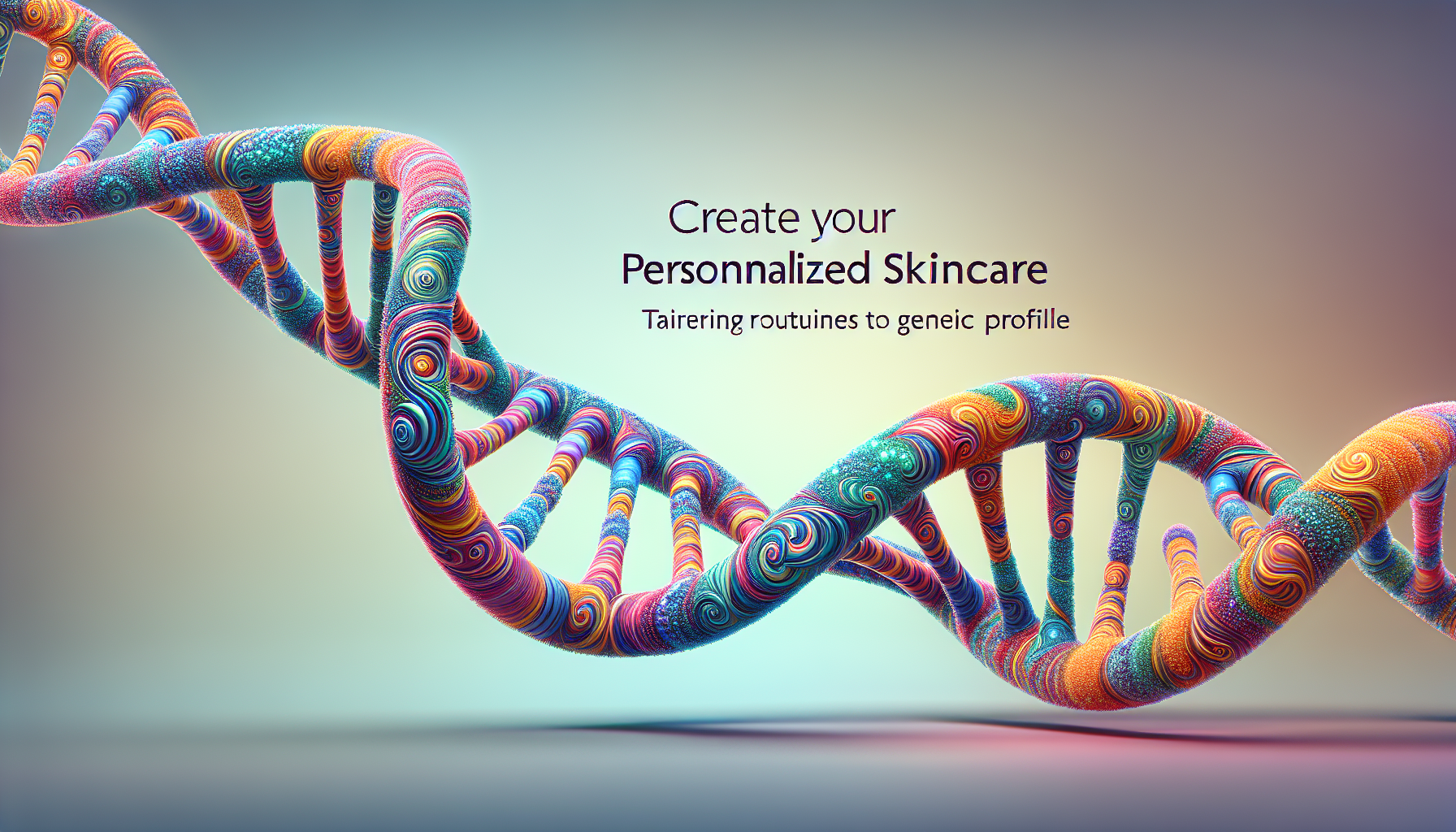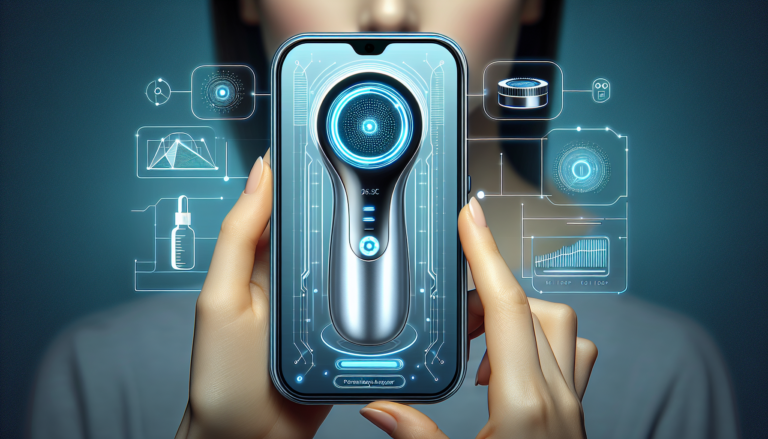In today’s world, skincare has become an essential part of self-care and maintaining a youthful appearance. With advancements in technology and a deeper understanding of genetics, the concept of personalized skincare has emerged. The idea is simple yet revolutionary; tailor skincare routines to individual genetic profiles. By analyzing a person’s unique genetic makeup, experts can identify the specific characteristics of their skin and formulate a personalized routine that addresses their specific needs. This innovative approach to skincare promises to revolutionize the way we care for our skin and unlock the secrets to achieving radiant and healthy complexions.
Understanding Genetic Skincare
Genetics and Skincare
Genetic skincare focuses on the relationship between genes and how they influence individual skin types and concerns, paving the way for personalized skincare routines. The field recognizes that genetic factors play a crucial role in determining various aspects of our skin, such as its texture, moisture levels, and susceptibility to different conditions.
The Role of Genes in Skincare
Our genes determine the characteristics of our skin, including its natural hydration levels, collagen production, and response to external factors like the sun or pollution. Some people may inherit genes that make them more predisposed to certain skin conditions, such as acne or eczema, while others may have genes that give them a natural glow or resilience against premature aging.
How Genetic Testing can Inform Skincare Routines
Genetic testing offers the opportunity to gain a deeper understanding of one’s skin at a cellular level. By analyzing DNA, genetic testing can identify specific genes and genetic variants related to skin concerns, which can help individuals tailor their skincare routines more effectively. This knowledge allows for personalized recommendations based on an individual’s unique genetic makeup, ensuring that skincare products and treatments are targeted to their specific needs.
Analyzing Skin Concerns
Identifying Skin Concerns
To effectively address skincare concerns, it is crucial to identify them correctly. This may involve recognizing common issues such as acne, dryness, pigmentation, or signs of aging, or more complex conditions like rosacea or dermatitis. Each skin concern requires a different approach, and understanding the underlying genetic factors can provide valuable insights into why these concerns occur and how to manage them.
Common Skin Conditions
Skin conditions can vary widely, encompassing everything from common acne to rare genetic disorders. Some of the most prevalent skin conditions include acne vulgaris, eczema, psoriasis, rosacea, and hyperpigmentation. By recognizing these conditions and their genetic predispositions, individuals can implement targeted skincare routines to minimize the appearance and effects of these concerns.
Assessing Genetic Predispositions
Genetic predispositions influence an individual’s likelihood of developing certain skin conditions or concerns. For example, individuals with a family history of eczema may have a higher risk of experiencing the same condition due to genetic factors. Assessing genetic predispositions through comprehensive genetic testing can help individuals understand their susceptibility to specific skin concerns and take proactive steps to manage them even before they arise.
Genetic Testing for Skincare
The Advancements in Genetic Testing
Advancements in genetic testing have revolutionized the skincare industry by allowing individuals to gain insights into their skin’s genetic makeup easily. Traditional genetic testing methods required extensive laboratory processes, but technological advancements now enable streamlined and cost-effective testing. Genetic tests have become more accessible, giving individuals the opportunity to understand their skin’s unique genetic blueprint.
Benefits of Genetic Testing for Skincare
Genetic testing for skincare offers numerous benefits. It allows individuals to discover their genetic predispositions to specific skin conditions, understand their skin’s unique needs, and make informed decisions regarding their skincare routines. By tailoring skincare products and treatments to their genetic profile, individuals have a higher chance of maximizing results and achieving healthier, more radiant skin.
Choosing the Right Genetic Testing Service
With the increasing popularity of genetic testing for skincare, it is essential to choose the right genetic testing service that aligns with one’s goals and values. Factors such as the credibility, reputation, and expertise of the testing company should be considered. Additionally, individuals should ensure that the service provides comprehensive genetic analysis specifically tailored to skincare concerns. Consulting with healthcare professionals can also help in selecting a reputable and reliable testing service.
Customizing Skincare Routines
Understanding Individual Skin Types
Understanding one’s skin type is crucial for designing an effective skincare routine. While genetic factors play a significant role, other factors such as environmental influences and lifestyle choices also impact skin health. Identifying whether the skin is oily, dry, combination, or sensitive helps in selecting the most suitable skincare products and treatments that cater to the unique needs of each skin type.
Designing Personalized Skincare Routines
Personalized skincare routines capitalize on the knowledge gained from genetic testing and understanding individual skin types. With this information in hand, individuals can customize their skincare routines to address specific concerns effectively. This may involve incorporating targeted ingredients, adjusting the frequency and order of product application, and adapting the routine based on the changing needs of the skin.
Tailoring Products to Genetic Profiles
Genetic testing provides valuable insights into which ingredients and products are most beneficial for an individual’s genetic profile. For example, individuals with a genetic predisposition to dry skin may benefit from hydrating ingredients like hyaluronic acid. By tailoring skincare products to their genetic profiles, individuals can optimize their routines and prioritize ingredients that address their specific concerns, resulting in more effective skincare outcomes.
Ingredients for Genetic Skincare
Natural Ingredients for Genetic Skincare
Natural ingredients have long been valued in skincare for their gentle yet effective properties. For genetic skincare, natural ingredients can play a significant role in enhancing overall skin health. Ingredients such as aloe vera, chamomile, green tea, and rosehip oil offer soothing and nourishing benefits that promote a balanced complexion, minimize inflammation, and support the skin’s natural anti-aging mechanisms.
Targeted Ingredients for Specific Concerns
Different skin concerns require specific ingredients to address them effectively. For example, niacinamide and salicylic acid are beneficial for acne-prone skin, while vitamin C and retinol help combat signs of aging. Genetic testing can guide individuals in selecting ingredients that are most suitable for their specific concerns, ensuring that they can make informed choices when choosing skincare products.
Avoiding Ingredients Unsuitable for Genetic Predispositions
Understanding genetic predispositions can also highlight which ingredients individuals should avoid. Some genetic profiles may indicate a higher likelihood of sensitivity or adverse reactions to certain ingredients. For instance, individuals with a genetic predisposition to rosacea may need to avoid harsh exfoliants or fragrances that can trigger flare-ups. By avoiding unsuitable ingredients, individuals can prevent potential skin irritations and maintain a healthy skin barrier.
Nutrition and Skincare
The Relationship between Nutrition and Skin Health
Nutrition plays a crucial role in maintaining overall health, including skin health. A well-balanced diet rich in antioxidants, vitamins, and minerals helps support the skin’s natural functions and protect it from oxidative stress and inflammation. Nutrients like omega-3 fatty acids, vitamin E, and vitamin C are particularly beneficial for promoting healthy skin.
Eating for Healthy, Glowing Skin
To support genetic skincare efforts, individuals should incorporate skin-friendly foods into their diets. These may include fruits and vegetables, lean proteins, whole grains, and healthy fats like avocado and nuts. Additionally, staying hydrated is essential for maintaining optimal skin hydration levels. By nourishing the body from within, individuals can enhance the effectiveness and results of their skincare routines.
Supporting Genetic Skincare through Diet
Certain nutrients can specifically support genetic predispositions related to skin concerns. For instance, individuals prone to hyperpigmentation may benefit from consuming foods rich in antioxidants like berries, citrus fruits, and leafy greens. By understanding their genetic predispositions, individuals can make informed dietary choices to support their unique skincare needs.
Lifestyle Factors in Genetic Skincare
Impact of Lifestyle Choices on Skin Health
Lifestyle choices can significantly impact skin health and the effectiveness of skincare routines. Factors such as sun exposure, smoking, alcohol consumption, and sleep patterns can all influence the skin’s appearance and well-being. By adopting healthy lifestyle habits, individuals can enhance the results of their personalized skincare routines.
Exercise and its Effects on Skin
Regular exercise promotes healthy blood circulation, which can improve the delivery of nutrients and oxygen to the skin cells. Exercise also supports the body’s natural detoxification processes, aiding in the removal of toxins that can contribute to skin concerns. Incorporating physical activity into one’s routine can thus contribute to healthier, more vibrant skin.
The Role of Stress in Skincare
Stress can have a profound impact on skin health, often exacerbating existing concerns or even triggering new ones. High levels of stress can disrupt the skin’s natural equilibrium, leading to increased oil production, inflammation, or a compromised skin barrier. By managing stress through practices like mindfulness, meditation, and self-care, individuals can support their genetic skincare efforts and promote overall skin well-being.
Sustainable and Ethical Genetic Skincare
The Importance of Ethical Sourcing
In the pursuit of genetic skincare, it is crucial to consider ethical sourcing practices for skincare ingredients. Ethical sourcing ensures that ingredients are obtained in a sustainable and responsible manner, taking into account environmental impact, fair trade practices, and social responsibility. By choosing brands that prioritize ethical sourcing, individuals can feel confident that their skincare products align with their values.
Sustainable Packaging Solutions
Sustainability extends beyond ingredient sourcing to packaging solutions. The beauty industry has made strides in reducing waste and embracing sustainable packaging practices. This includes using recyclable materials, minimizing plastic waste, and exploring innovative packaging alternatives. By supporting brands that prioritize sustainable packaging, individuals contribute to a more environmentally conscious approach to genetic skincare.
Cruelty-Free Skincare
Cruelty-free skincare involves selecting products that have not been tested on animals. Many brands now proudly display cruelty-free certifications, assuring consumers that no animals were harmed during the development or testing of their products. By actively choosing cruelty-free skincare options, individuals can support ethical practices and contribute to the movement towards more humane skincare solutions.
Professional Guidance in Genetic Skincare
Consulting Dermatologists and Geneticists
For a comprehensive understanding of genetic skincare, individuals can seek expert guidance from dermatologists and geneticists. These professionals can provide personalized recommendations based on an individual’s genetic profile and skin concerns. They can also offer insights into the latest advancements in the field and assist in designing targeted skincare routines that address specific concerns effectively.
Finding Specialists in Genetic Skincare
As the field of genetic skincare continues to evolve, specialists are emerging to focus specifically on this area of expertise. These specialists have in-depth knowledge of genetics, dermatology, and skincare, allowing them to provide specialized guidance. Individuals can seek out these professionals to ensure they receive the most accurate and up-to-date information regarding their genetic skincare needs.
The Future of Personalized Skincare
Personalized skincare is poised to become the future of the industry. With advances in technology and increased accessibility to genetic testing, individuals can expect more refined and effective skincare routines. As genetic research continues to uncover new findings, personalized skincare will evolve, allowing for even more precise and tailored solutions to individual skin concerns.
Conclusion
The Future of Personalized Skincare
The future of skincare lies in personalization, with genetics playing a fundamental role in understanding individual skin concerns. By leveraging genetic testing, individuals can gain valuable insights into their skin’s unique needs and genetic predispositions. This knowledge empowers individuals to design personalized skincare routines, choose suitable products, and make informed choices regarding their lifestyle and nutrition to achieve healthier, more radiant skin.
Embracing Genetic Diversity in Skincare
Embracing the role of genetics in skincare allows for a more inclusive and diverse approach. Recognizing and acknowledging that every individual’s genetic makeup is unique enables the skincare industry to cater to a broader range of skin concerns. By embracing genetic diversity and tailoring skincare routines to specific genetic profiles, everyone can experience the benefits of personalized skincare regardless of their genetic predispositions.


